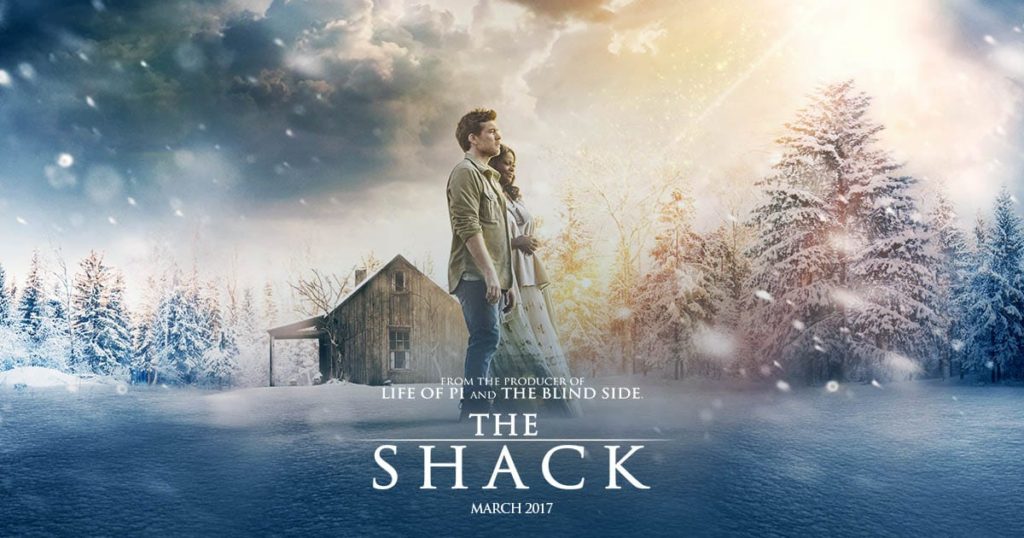
A man returns to a small shack in the mountains where his daughter was abducted and murdered years ago. While there, he meets with God and learns to cope with the evil of his daughter’s suffering in light of the goodness of God.
The Good
This is a film in the vein of Miracles from Heaven and Heaven is for Real, a well made, well-told Hollywood attempt to penetrate the “faith-based” market. I have to say right up front, that I had read the book and was quite dubious going in. The book was certainly less than orthodox in its understanding of God, even unbiblical at times.
But as it turns out, apparently, the producers and Lionsgate, learned a bit of a lesson from past “Biblical” movies by pagans and atheists, that maybe they should have some real Christian influence on a product for that audience. I could tell that there must have been some Christians involved in the development of this story that desperately tried to keep it inline with that demographic.
For that, I applaud the filmmakers.
This story tackles THE most important struggle in the human experience: If God is good, why does he allow evil and suffering? And it does so with some rather powerful moments of truth worthy of the best of Christian apologetics (the “defense of the Faith”).
The first half of the movie builds on the relationship that Mack, the lead character, played with subtlety and nuanced emotion by Sam Worthington (Yes! Sam can act.) We see the precious sweetness of his youngest of three children, five year old Missy. We feel the abject horror of the number one universal fear of every parent, the abduction and murder of their child by an evil person.
This gut-wrenching dramatic incarnation is truly one of the most powerful and poignant I have experienced in movies (As it was in the book). And Mack’s hopeless aftermath of withdrawal and rejection of God rings with universal truth. This is an honest film of man’s spiritual struggles to make sense of a world of evil, suffering and God. There wasn’t a moment of inauthenticity in this part of the story.
But a few years later, Mack gets a letter claiming to be from “Poppa,” the name for God that little Missy used to use. It says to meet him up at the shack in the mountains where they found Missy’s tattered dress (never having found the body).
Mack reluctantly goes there and soon finds himself in the second half of the movie in a personal discourse with the Almighty in the form of three people, an Asian woman, Sarayu, who is supposed to be the Holy Spirit, a Middle Eastern young man who is Jesus, and the Father, a black woman named Poppa (We’ll deal with that later).
The rest of the story is a dialogue between Mack and the godhead. God compassionately forbears with Mack’s anger and tries to show him that he is too blinded to understand the truth of the bigger picture in relation to suffering and the goodness of God. He/She leads Mack toward his redemption and forgiveness.
But is it biblical? Or is it another Hollywood bastardized subversion of Christianity?… Continue reading
